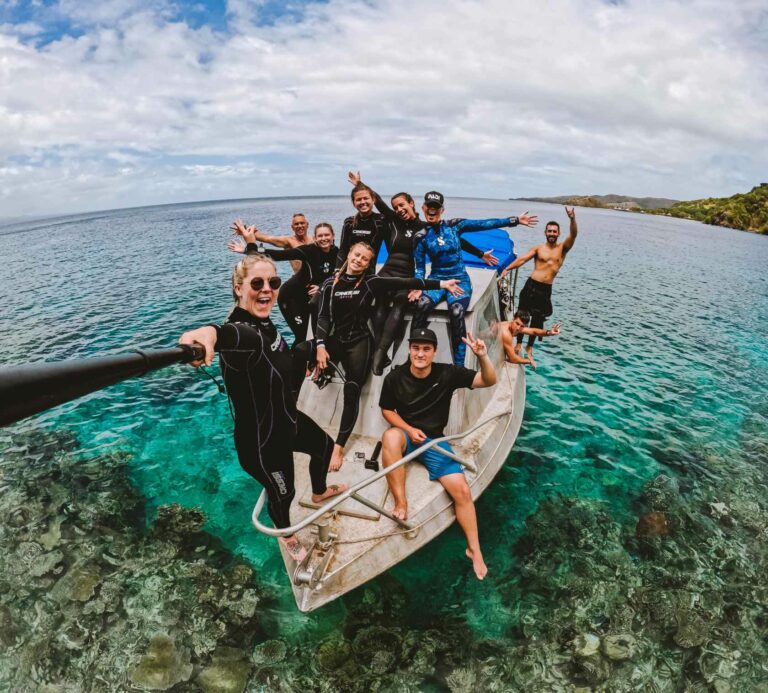Despite widespread despondency about climate change and the ocean environment, PADI says it went into 2024 feeling optimistic about the future of our shared blue planet. The training agency has identified four scuba-diving trends that it reckons are empowering more people to ‘become superheroes for the ocean’…
TREND 1: ’Eco-diving is accelerating’
Conde Nast Traveller recently named “eco-diving with PADI” the #2 travel trend for 2024. “For PADI’s 30 million+ scuba divers, one of the most important things when diving is knowing they are making sustainable and responsible decisions,” says the training agency.
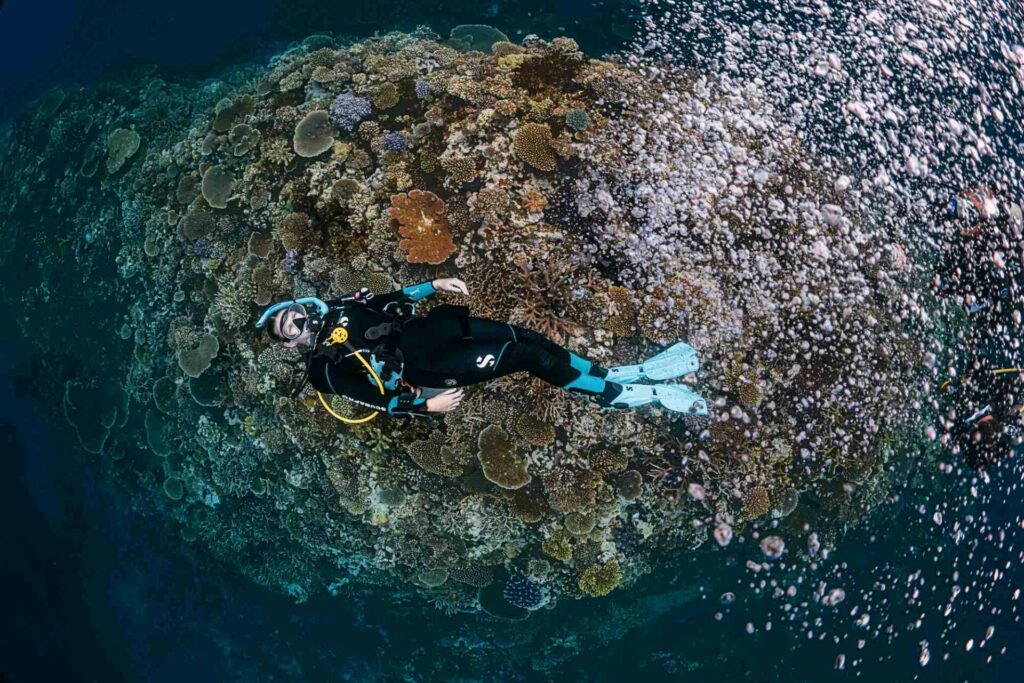
“They are making choices based upon their commitment to our shared blue planet by choosing to dive in Marine Protected Areas (MPAs) and in Adopt the Blue sites, participate in citizen-science initiatives, including education and volunteering on their dive-trips, and ensuring that their dive-trips give back by booking with PADI Eco Centres.”
Also read: PADI offers divers GoPro speciality training
The PADI Eco Centre accreditation was launched on Earth Day 2023 to recognise and elevate environmentally committed dive operators, basing that judgment on the UN Environment Programme and Reef-World Foundation’s Green Fins programme.
So far 100 centres have been accredited in 32 countries, with more than 300 others in 64 countries said to be working towards accreditation.
Sandals and Beaches in the Caribbean have become the first international resort chains to sign up to this process, with Explorer Ventures the first international liveaboard fleet and Dive Friends Bonaire the first national dive-centre chain.
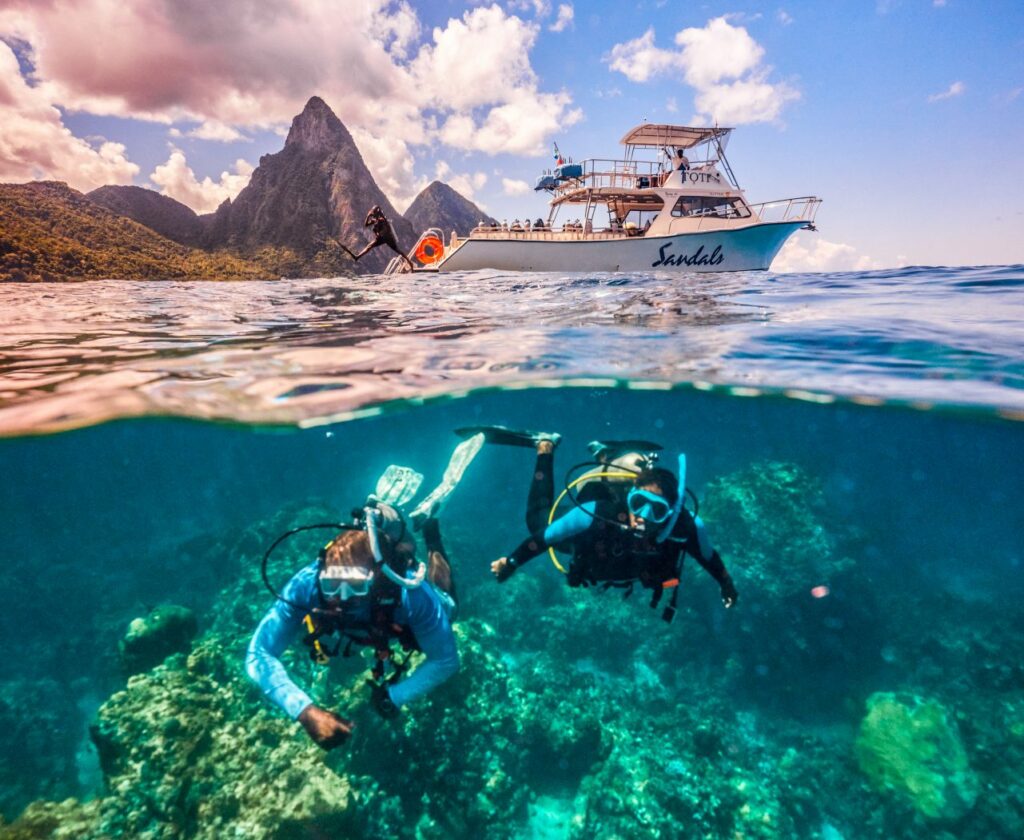
Divers Dan, Tusa Reef Tours and Freedom, described as the three biggest diving-tourism operations in Australia, are similarly engaged in the programme, but at present it is Spain with 10 businesses and South-east Asia with 24 that are the two regions proving fastest to acquire accredited PADI Eco Centres.
It takes more than 12 months to become accredited because of the rigorous checks and balances required, says PADI, which wants to see at least 10% of its global membership as Eco Centres by 2030.
According to the agency, the Gen Z demographic (14- to 28-year-olds) is willing to spend 10% more on diving with verified sustainable operators. A Reef-World survey found that more than 80% of divers booking trips now seek sustainable operators that prioritise marine-life conservation.
PADI Eco Centres are reported to have helped to remove 2.3 million pieces of plastics from the ocean through PADI’s Dive Against Debris programme, as well as disentangling 34,773 marine animals and adopting 5,800 dive-sites to monitor and support becoming MPAs.
TREND 2: ‘Sharks are friends and divers are saving them’
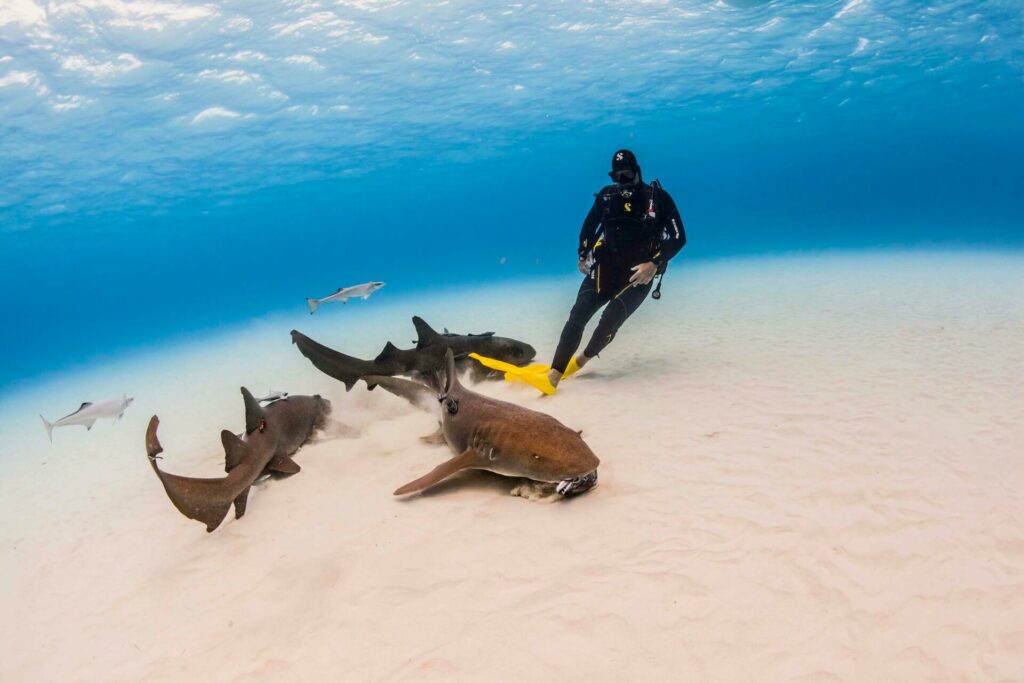
Another reason to be positive, according to PADI, is that over the past two years its scuba divers have been helping to secure protection for vulnerable shark and ray species.
In 2021 they helped the cause of mako sharks at the International Commission for the Conservation of Atlantic Tuna (ICCAT), and the following year at CITES 54 requiem shark and ray species gained new protection.
This year PADI is launching the Global Shark & Ray Census, described as the largest survey of its kind that also includes several megafauna.
It will also begin teaching a Shark & Ray Speciality course to help divers identify, monitor and log shark and ray activity. In both cases the data is to be used to influence governmental policies to protect vulnerable species.
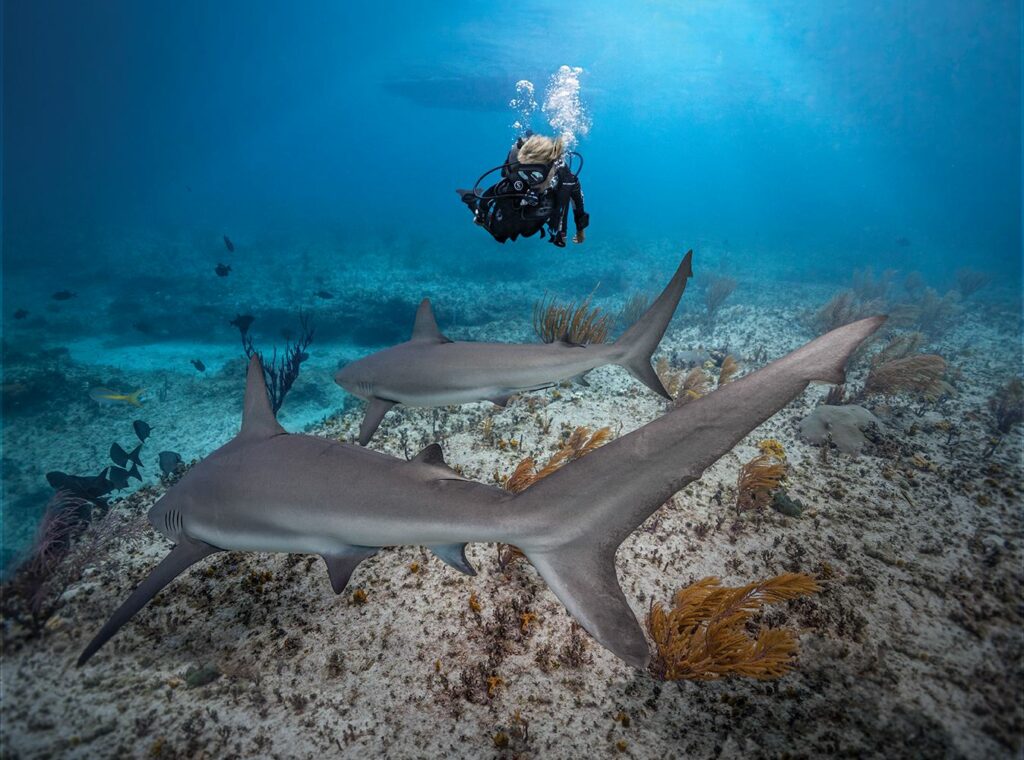
PADI says it has also created a responsible shark + ray tourism guide to ensure that best practices are followed by its 6,600+ dive-centres and resorts in 183 countries and to enable divers to contribute positively to the shark tourism economy.
TREND 3: ‘Scuba divers volunteer as coral gardeners’
PADi says that with numbers of both recreational and professional PADI divers planting coral around the world increasing, it is re-launching its Coral Restoration Speciality course.
Opportunities for divers to get involved in 2024 include joining in with the activities of the Coral Restoration Foundation, the world’s largest coral-reef restoration body, which says it has planted more than 74,000 corals on the Florida Reef Tract in the past 12 years.
Although help is welcomed year-round, the CRF holds an annual Coralpalooza event on World Oceans Day (8 June)
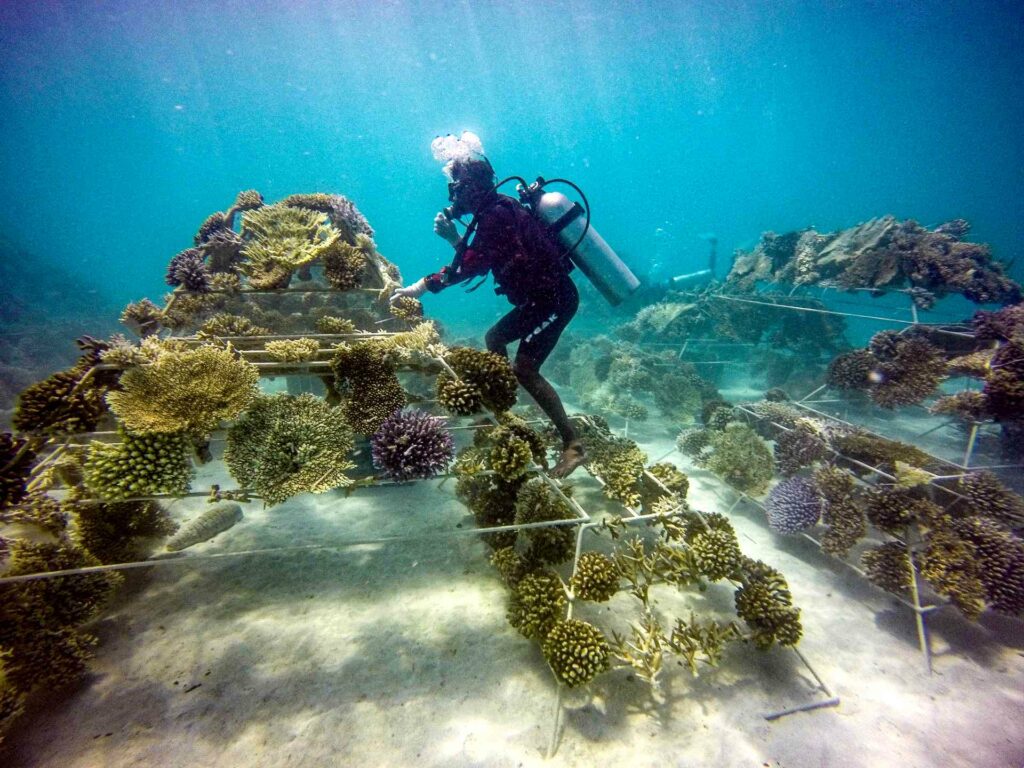
Diver’s Paradise in Key Biscayne, Florida, studies corals’ microbiomes and how different environments help them thrive – establishing, for example, that coral in Miami yachting harbours has remained unaffected by coral bleaching. It is launching a scheme to help dive-centres and divers around the world participate in regenerating reefs in their own localities.
Reef Renewal Foundation Bonaire invites volunteer scuba divers to help restore the southern Caribbean island’s coral – including during its annual ReeFiesta event on World Reef Day (1 June). And Reef Restoration Foundation in Australia, said to be the Great Barrier Reef’s first coral-restoration initiative, is seeking volunteer divers to help it reach its goal of planting 25,000 new corals.
In the Pacific islands, Coral Gardeners is inviting divers to get involved in its coral-planting on the reefs of Moorea in French Polynesia and the Mamanuca Islands in Fiji. And in the western Indian Ocean in Kenya, REEFolution is looking for volunteers to help collect healthy corals, place them in nurseries and outplant them on local reefs.
TREND 4: ‘The ocean is healing scuba divers’
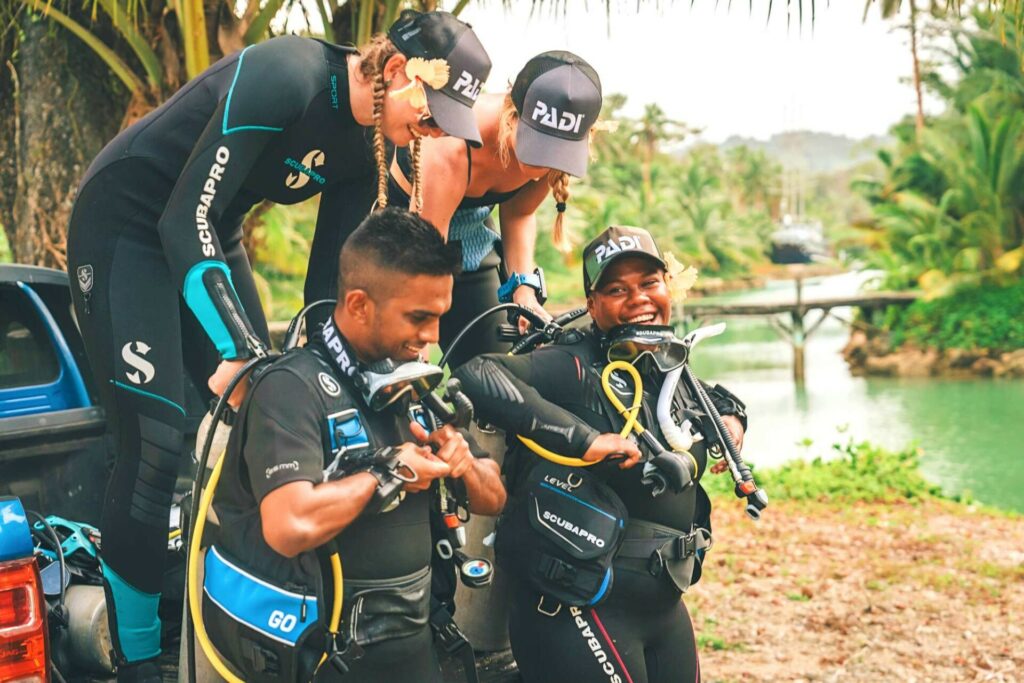
With a range of mental and physical benefits recognised in several studies recently, PADI reckons that scuba diving has become one of the biggest wellness trends.
Divers benefit from a vitamin D boost in the open air, become more conscious of their breathing, enhance their fitness levels, improve their quality of sleep, and become connected with a like-minded community, says the training agency, which also says that the act of diving with a purpose, as outlined in the three preceding trends, can provide “an enormous mental-health benefit”.
PADI says it is committed to making the underwater world accessible to all through its adaptive diving programmes. Its Adaptive Techniques course teaches divers how to modify equipment configurations and develop skills so that anyone can be enabled to explore the underwater world regardless of physical or mental disability.
There are also PADI Adaptive Diving Facilities around the world that include staff trained in the techniques along with accessible classrooms, pools and boat-decks, says the agency, which offers three examples of its successes:
Last October PADI teamed up with Reef Divers in Mozambique to certify Jessica Pita, who has been blind since the age of 11. “Hearing the crackling of coral instilled a sense of confidence in her that has made her believe more in herself and instilled a new sense of wanderlust for underwater exploration,” it says.
Triple-amputee US military veteran Bryan Anderson and his commander Robert Currer are said to have found mental healing from the Iraq war as they reunited when Currer certified Anderson as a PADI Open Water Diver in California.
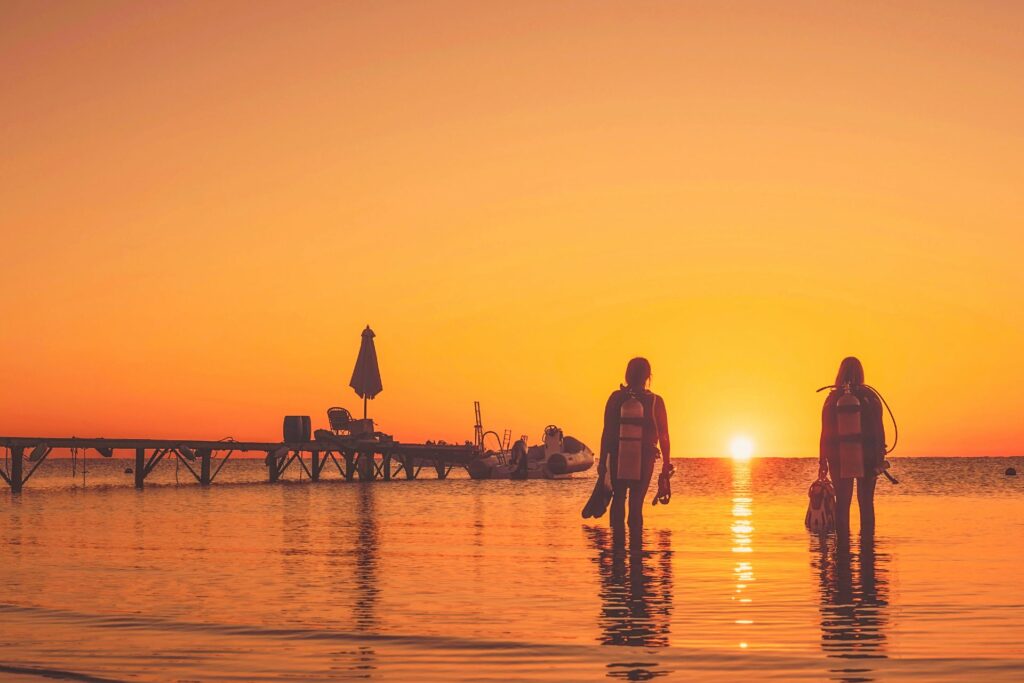
And Ryan Chen, paralysed in an accident as a teenager, was said to have found healing and clarity through becoming a PADI Open Water Diver with his dive-buddy Kent Yoshimura. One of their scuba-diving trips led to them creating Neuro Gum – a range of chewing gum and mints claimed to energise, calm and/or focus the purchaser.
Chen was subsequently named to the Forbes 30 under 30 – and in 2024 Neuro is embarking on a fund-raising drive with PADI in hope of collecting US $100,000 for PADI AWARE.
Also on Divernet: PADI introduces AWARE eco-tourist speciality, PADI names first 11 Eco Centres on Earth Day, Seeking dive-sites for Adopt the Blue scheme, PADI & SSI use socials to spread diving word
